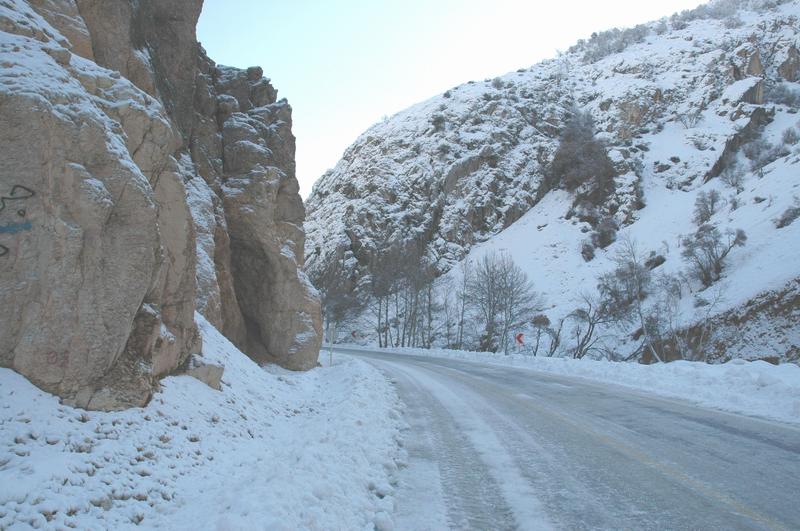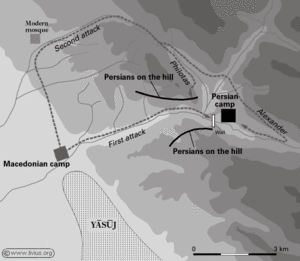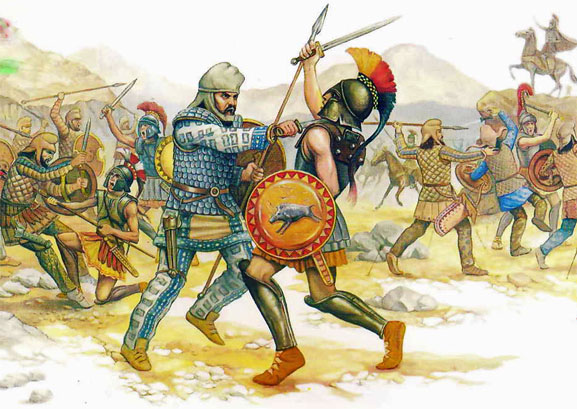As they say, history tends to repeat itself. In the winter of 330, the Battle of the Persian Gates was the last stand for Achaemenid Persia against the glorious conquest of Alexander. A mere few hundred defended an important passage against the thousands led by Alexander until a well-known betrayal sealed the fate of the Persians and their empire.
After he had already invaded Egypt, Babylon, Susa, and defeated the Persian king Darius, the Macedonian Conqueror, Alexander, continued his glorious conquest further to the east. Alexander moved forward to the ceremonial capital of Persepolis and the Emperor’s city of Pasargadae. Soon he would be up against the small defending force of Persis under the command of the Satrap governor Ariobarzanes, who would defend the passage for 30 whole days.
Army Movement and Positioning
With Susa conquered, Alexander divided his army in two, between himself and his general Parmenion. The general was to follow the Royal Road to the two capital cities, while Alexander advanced on the route to Persis. On his movement towards the small Satrap city, the mountain tribe of Uxians made the mistake to think of Alexander as a fool and demanded tribute for passage. They were defeated. As Alexander advanced forward, thinking there would be no more surprises and resistance, he neglected the need to scout the area beyond of the Persian Gates (Darband-e Pars) passage.
Ariobarzan, following the orders of King Darius who went on to regroup and gather forces after the heavy defeat at the Gaugamela, had only a handful of soldiers to face Alexander’s huge army. He used Alexander’s mistake and deployed his men for an ambushing attack on the passing Macedonians on the two sides of the canyon road. On the east side of the Tang-e Meyran valley, where the road made a sharp bend facing the sunrise, Ariobarzan had settled a small camp and obstructed the road with a wall, waiting to ambush The Macedonian and his men.

The Defense
Unknowingly, Alexander entered the seemingly calm valley beyond the gates and followed the road which lay in a narrow canyon. The 17,000 strong Macedonians, blinded by the sun, were suddenly attacked from the rear by the 700 men of Ariobarzan.
Trapped on the winter road, a rain of rocks, stones, and missiles was poured over the heads of the conquerors. The loss for Alexander was heavy, the surprising bombardment by the Persians upon his men cost the lives of several entire platoons. He was forced to retreat. However, the narrow and thin road, the snow, and the still advancing rear guard, made it extremely difficult for the ambushed vanguard to retreat in an organized manner, which increased the casualties and the life of Alexander himself was threatened. At some point, they managed to withdraw, leaving their dead behind, which added even more sting to the injury.
It was a considerable setback for the Macedonians which threatened their advancement and continuation of the conquest. For the first time since the invasion of the Persian Empire, Alexander faced such complete defeat, where he was unable to do anything to win or save his men. Nevertheless, it soon became clear the victory was short and the last one for the Persians.
Ariobarzanes and his men were thrilled with their victory. They just bought more time for their mighty king to recover and gather an army to defend what was left of the empire, for Alexander could not pass and he had to use a different, much longer road to reach his destination. After the first clash, the Persian commander and his men held off the attacks of Macedonian forces. For an entire month, they protected the pass, as the Macedonians grew more impatient and lost more and more men.

Finally, Alexander and his army were granted a chance to turn the tide in their favor. Historical texts cannot point with certainty to who it was – possibly a shepherd or a war captive – but it is likely it was Libāni, a local chieftain who betrayed the Persian cause in order to save his own skin. Under cover of night, Alexander and part of his army followed the road through another valley which would give them the chance to outflank their enemy and finally break their defense. Alexander’s general Craterus was granted the command of the remaining men in the Macedonian camp. Their tactics were simple, but if effective, would allow them to annihilate the Persian defenders.
The Defeat
As they reached a certain destination on the road, Alexander again divided his army. He left part of it under the leadership of Philotas who headed south, while the Macedonian himself continued southeast targeting the other half of the defenders. They successfully encircled the Persians and as the first sun rays lightened the snow, the two Macedonian contingents initiated their pincer attack. The surprised Persians were either struck by the weapons of the invaders or slipped in the snow and ice. As they fell down the rock they grabbed their comrades looking for help, only to doom them, too, to fall to their deaths.

The small resistance force of Ariobarzanes was quickly uprooted and whatever was left of it realized they stood no chance. Ariobarzanes together with one of his lieutenants, who was his own sister Youtāb, led the men in a last vicious attack straight into the enemy lines, just to take down with them as many of the invaders as they could before they died.
Thus, the last line of defense for the Persian empire was plundered and destroyed. Alexander was, however, impressed with the brave defense and self-sacrifice of the Persians, and ironically marked the grave of Ariobarzanes with the words “In memory of Leonidas”. Persepolis was captured, the city pillaged and sacked, and the royal palace that took over two centuries to build was burned to the ground. Not long after, Darius III met his end together with his empire.
